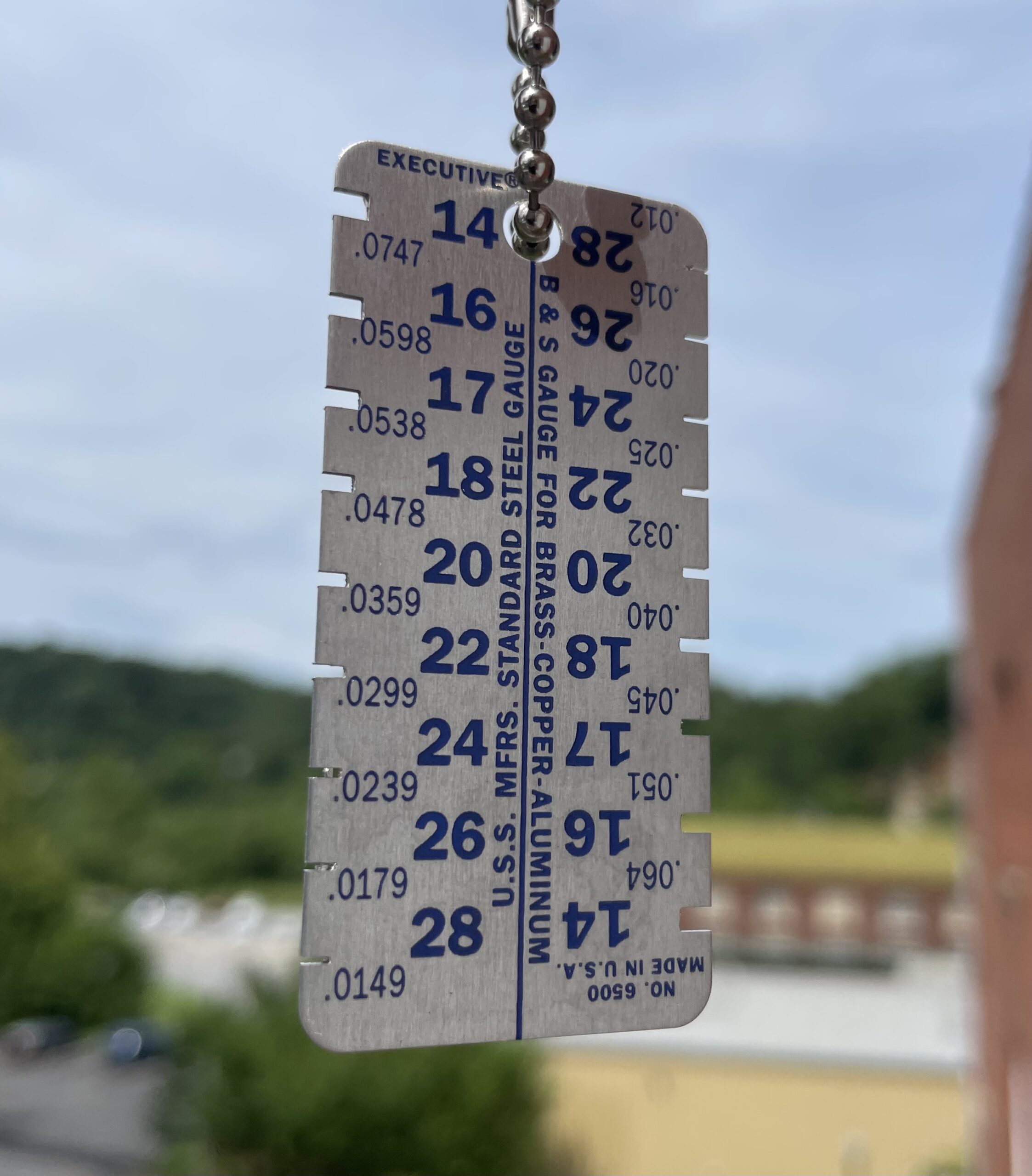If you’ve ever replaced or installed a metal roof, you know there are plenty of decisions to make; from panel profile and colors to metal type. These panel profiles come in different thicknesses or gauges, and it is important to determine which gauge is ideally suited for each application.
Metal roofing gauges range from 22 to 29, with 22 being the thickest 29 being the thinnest. 24 gauge is the most popular panel thickness choice for commercial and high-end residential construction.
- 22 gauge is the thickest gauge and is very durable against severe weather conditions. However, it is also the most expensive option compared to other gauges. 22 gauge is utilized in some extreme weather applications/wind zones where higher uplift is needed.
- 24 gauge is a great option for those who live in areas that are more prone to harsh weather but want a cheaper option. This is also the most popular and common gauge.
- 26 gauge is thinner than 24-gauge, so it gives flexibility and versatility in design and is generally less expensive than 24-gauge steel. It is not the best option for those who are prone to harsh weather.
What gauge should you choose?
The thicker the gauge the more durable it will be. However, that isn’t always necessary or important for all projects. Choosing the gauge of the metal roof comes down to the type of building and the location of the building.
Thicker gauge panels are typically used to aid structural support to the building. For instance, a post-frame building, where the panels span between two trusses.
Because most homes have a layer of plywood, metal roofing doesn’t have a structural role. 26 gauge is recommended if you live in an area that isn’t susceptible to harsh weather conditions. However, if you live in an area that experiences strong wind or hailstorms, it’s recommended to choose a thicker panel.
How can you measure thickness?
A metal gauge is the best way to get accurate readings. However, if you use a tape measure, measure the thickness in millimeters then multiply that by 0.03937.
Additionally, you can refer to the table below:
| Gauge | Steel | Stainless |
| 26 | 0.0179 in | 0.0187 in |
| 25 | 0.0209 in | 0.0219 in |
| 24 | 0.0239 in | 0.025 in |
| 23 | 0.0269 in | 0.0281 in |
| 22 | 0.0299 in | 0.0312 in |
*Consult for common aluminum gauge availability



